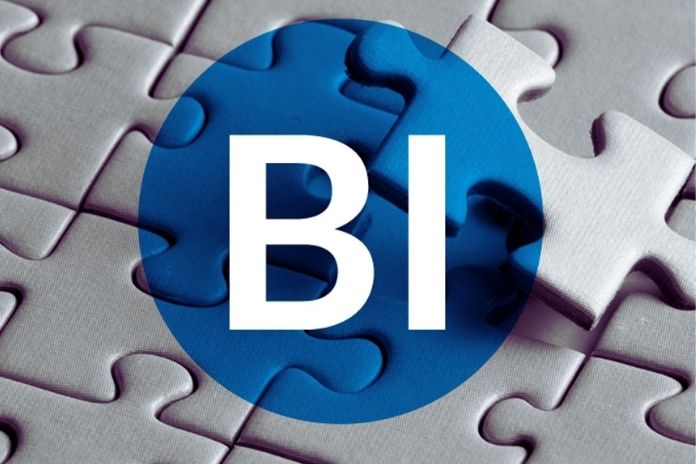Digital transformation is a path of no return; after all, technology can drive the growth of a business. In this scenario, we decided to talk more about the importance of BI for retail.
In such a competitive market, investing in the power of data can help you make more strategic decisions and stand out from the competition. If that’s what you want, check this post until the end!
What Is Business Intelligence (BI)?
Business Intelligence (BI) is a practice based on capturing, storing, processing, analyzing, and using data within a company.
In other words, we’re talking about a tool that focuses on using data in favor of the business, generating better decision-making. Knowing this, it is easy to visualize its role in retail. Being close to the final consumer, this market needs to be accurate in its actions, especially with the rapid changes in profile and customer demands.
BI is responsible for supporting managers’ decisions. With it, everything is implemented strategically, considering the consumer’s needs and the company’s objectives, always focusing on innovation.
What Is The Importance Of BI For Retail?
Business Intelligence is one of the essential tools for retail today. The explanation for this is quite simple: it allows information and data to be used intelligently and in favor of the company.
In the age of data, taking advantage of only some of this potential would be a big mistake; after all, we are talking about one of the most valuable assets for retailers and which is at their disposal.
The very dynamics of the retail market require decisions based on strategic analysis of accurate and up-to-date data. A company that understands this enjoys numerous benefits. Check out some of them below.
Helps Revolutionize Operations
One of the most relevant impacts of BI in retail is a complete revolution in the company’s operations. As managers exchange a performance based on feeling for another based on reliable data, everything starts to flow better.
In summary, we have more strategic operations and processes. All sectors work harmoniously, and the positive results are perceived daily.
Enhances Information Security
Another logical consequence of Business Intelligence in retail is risk reduction. As every decision is preceded by an analysis of the collected data, managers and employees, make fewer mistakes.
We, therefore, have a safer and more intelligent performance. This is the case, for example, in inventory management, which starts to closely monitor the products with the most and most negligible output, helping to promote more successful marketing campaigns and the replacement of products appropriately.
Increases Data Reliability
Data is a powerful asset for retail, but as information grows, the challenge of making it useful for the business arises. Those not investing in BI have only a large data file without management and processing.
Investing in this tool makes it possible to understand what the data says, that is, extract insights, correct failures and make them reliable sources for decision-making.
Standardizes Analyzes
Does your company still use spreadsheets to control and manage data? Despite helping to organize information, they lose efficiency as the volume of data grows — which is common in retailers’ daily lives.
Adopting a BI tool improves information management and standardizes analysis. As a result, we make more agile and correct decisions, which leads to more competitive performance in the market.
Optimize Data Management
The importance of BI for retail is also seen in improving data management. The entire production chain benefits, as information is collected, stored, and analyzed more efficiently and quickly.
This is why the business can respond better to changes in consumption, adapting its stock and avoiding stockouts; after all, it is possible to place a new order before the product runs out and the customer is not served.
Prevent Losses
The percentage of retail losses is 1.79%, which is a high number but can be reduced with the help of BI. In addition to facilitating the carrying out of inventories, the tool helps to monitor the expiry date of products and to identify the causes of losses in each store.
Once again, technology proves to be an ally of the sector. Data analysis can serve as a basis for carrying out promotions to burn stock and developing actions to reduce theft, for example.
What To Consider When Adopting BI For Retail?
Business Intelligence is becoming increasingly popular in retail, as it can facilitate the daily lives of businesses that seek better results and more efficiency in their actions.
To implement BI in your company, first of all, it is essential to change the whole way of thinking of managers and employees. They need to be aligned to use data to support decisions.
The next step is to search for solutions and tools that guarantee the perfect use of the data. Compare and give preference to those that were developed for retail, as they consider the needs of this sector, such as:
- practicality;
- security;
- integration with other systems ;
- User access control.
It is essential to observe the support provided by the supplier, in addition to updating the resource; after all, it is necessary to have a modern, innovative, and always available tool. Next, you must prepare your team for this implementation, teaching them how to use the resource daily.
Finally, analyze the executed processes and identify the situations in which Business Intelligence can be helpful. As we have seen, it is an ally of retail and has the potential to improve all sectors.
ALSO READ: Business Analytics: How To Implement And What Are The Benefits?
